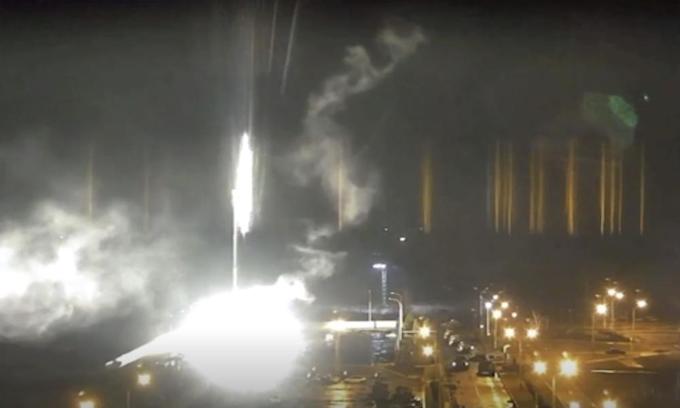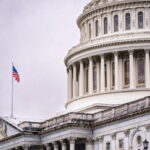(EFE).- The international community is again on edge, with the Zaporizhzhia nuclear power plant in southern Ukraine occupied by the Russians and coming under attack.
Moscow and Kyiv have accused the other of putting the security of Europe’s largest nuclear power plant in danger after it was the target of several attacks on Friday.
In his daily video message, Ukraine’s president Volodymyr Zelenskyy said that “the occupiers created another extremely risky situation for everyone in Europe”.
The United Nations Secretary General Antonio Guterres warned Monday in Japan that any attack on a nuclear plant is “suicidal”.
While the Ukrainians denounce Russian “blackmail” for the threat against the nuclear plant, the Russians demand pressure to be put on Kyiv to stop its attacks against Zaporizhzhia.
Despite being under Russian control practically since the first days of its invasion of Ukraine, it continues to be run by Ukrainian technicians. On June 7, Russian defense minister, Sergey Shoigu, assured that it is working normally.
The plant is Ukraine’s main electricity provider, generating a fifth of the country’s annual production and half the entire output from all four of Ukraine’s nuclear power plants.
The plant, built between 1981 and 1995, was recognized in 2000 as one of the three best nuclear power plants in the world for fully meeting the requirements of the International Atomic Energy Agency.
Although it has 80 containers, it is designed to house 380 with the capacity to store radiating fuel elements throughout the useful life of the plant.
According to IAEA data, Ukraine has four nuclear power plants located in Rovno, in the northwest, Khmelnitsky and Zaporizhzhia, both in the southeast of the country, and another called South Ukraine.
Together they have 15 reactors with a capacity to produce 13,835 megawatts.
In February 2022, the Russian invasion of Ukraine raised concerns about potential attacks on the plant while specialists pointed to Ukraine’s high dependence on nuclear energy.
The plant was attacked on 4 March by a Russian projectile, according to the IAEA.
In that context, the IAEA proposed talks between Russia and Ukraine to reach an agreement that would guarantee the safety of the nuclear power plants. EFE
© 2022 EFE News Services (U.S.) Inc.
—-
This content is published through a licensing agreement with Acquire Media using its NewsEdge technology.



















Zaporizhzhia is the ancestral home of the Cossack Brotherhood. The Czars won few wars without the help of the Cossacks who now oppose them. Putin will radiate the whole district if it means winning the war, which without the Cossacks who now oppose him he is losing.
These Russians are so stupid. If they blast this plant, the fallout will wind up blowing into their own territory, assuming weather patterns flow from west to east. Once again, zero concern for their own citizens!
WHEN HAVE THEY EVER cared for their own though?
Wasn’t Chernobyl in Ukraine too??
Isn’t it amazing how certain leaders shrug off problems and allow them to get out of hand to the point where fixing them is twice as dangerous as the original problem?
Fix them?? SURELY You jest.